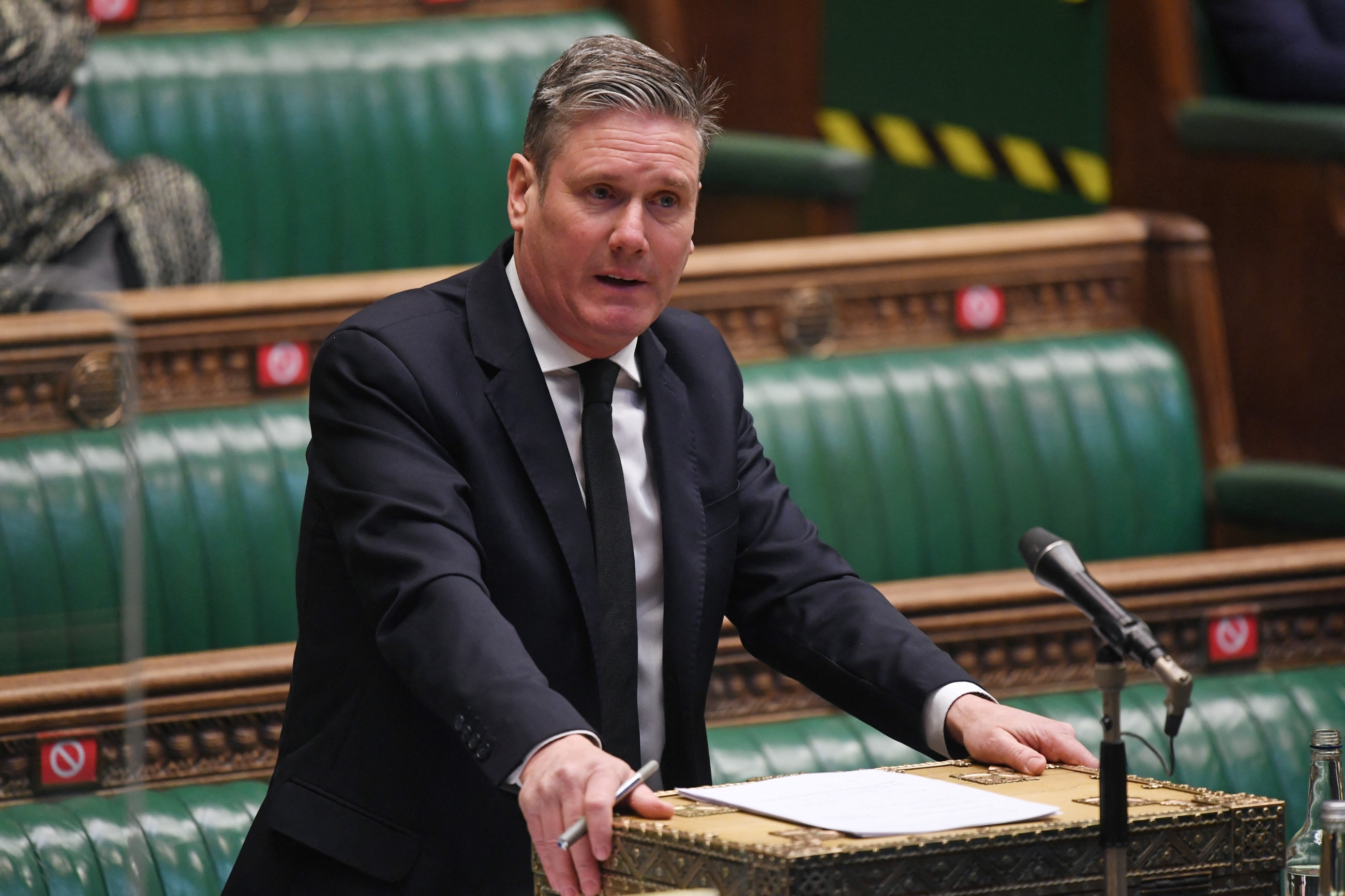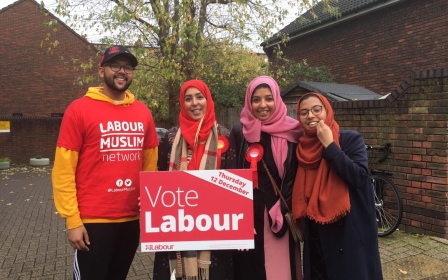EXCLUSIVE: Keir Starmer ignores Palestinian letter amid iftar cancellation controversy

UK Labour leader Keir Starmer has failed to respond to a letter sent to him by more than 25 British-Palestinian Labour members in which they raised concerns about internal treatment.
The letter, obtained from Labour sources and seen exclusively by Middle East Eye, accuses the party of creating a "hostile environment" for Palestinians under Starmer.
Stay informed with MEE's newsletters
Sign up to get the latest alerts, insights and analysis, starting with Turkey Unpacked
"Some of us have been members of the party for decades under different leaders and never have we experienced a party environment so hostile and unwelcoming to us as it has been since you took over its leadership," the statement reads. "Not even during the dark days of the illegal war on Iraq.
"Our community of traditional Labour voters is therefore deeply concerned and alarmed, and we fear that without your immediate action, their growing alienation from the Party will become a permanent rift."
The letter, which was signed by over 25 Palestinian Labour members, including writer Nadia Hijab and academic Ghada Karmi, was sent in mid-March. It has yet to receive a response.
Starmer withdraws from iftar
The development comes with Starmer under fire for pulling out of a Ramadan iftar on Wednesday because one of the event’s organisers supported the boycott of Israeli dates.
The Labour leader had been due to virtually participate in Open Iftar, a fast-breaking event organised by the Ramadan Tent Project. However, he withdrew after concerns were raised about tweets from the project’s CEO, Omar Salha.
The Board of Deputies and Jewish Chronicle approached Labour about Salha retweeting a Twitter post from Friend of Al-Aqsa which encouraged Muslims to boycott Israeli dates during Ramadan.
It also flagged a tweet in support of UK-based advocacy organisation Cage.
Tal Ofer, deputy at the Board of Deputies, tweeted on Wednesday: “Glad to see that after I raised up this issue, Keir Starmer withdrew his participation at the event. That's the correct decision!”
Labour sources confirmed to Jewish News that Ofer’s concerns had been taken into consideration by the leader.
Labour leader 'cowardly'
Users on social media blasted Starmer as "cowardly" for cancelling his participation.
"An invitation to iftar is an honour. Aside from being cowardly and pro-apartheid, Starmer is a very rude man," one user said.
"Open Iftar is apolitical and is about interfaith work and basic religious observance," wrote sociologist Stephen Jones. "Toxifying that, on the basis of two tweets made in a personal capacity, is really harmful."
One user ironically pointed out that Starmer wouldn't have shared a platform with himself in 2014, after he was pictured at a panel event with the words "Boycott Israel" on a sign behind him.
Ramadan Tent Project issued a statement in which it said it welcomed people from all backgrounds, and had a "mutually respectful and positive" relationship with the British Jewish community.
"We welcome [Jewish Chronicle journalist] Jake Wallis Simons and Tal Ofer to attend our iftars any evening this Ramadan and demonstrate that the diversity of opinion and tolerance only enriches our environment and creates a more inclusive space of belonging," it said.
Labour members support BDS
Several Twitter users pointed to the fact that boycotting Israeli dates is a very common practice among many Muslims.
"If he's refusing to go to Zoom Iftars where people boycott Israeli dates he'll struggle to go to any iftars," tweeted writer Dawn Foster. "Everyone I know boycotts Israeli dates."
Israel was by far the world's largest exporter of dates in 2020, according to consumer data firm Statista, with over $235m of sales. However, many of the country's dates are planted in the occupied West Bank, particularly in the Jordan Valley.
One social media user was bewildered by Starmer's decision, given that both the European Union and that the British government officially opposes the construction of illegal settlements in the occupied territories.
Last year, Labour's shadow foreign secretary Lisa Nandy said that the UK should ban goods from illegal settlements if the Israeli government went ahead with its plans to annex parts of the West Bank.
The Boycott, Divestment and Sanctions (BDS) movement against Israel is extremely popular among Labour party members.
Polling carried out by YouGov last month found that 61 percent of Labour members supported BDS, while only 8 percent opposed it.
Palestinians criticise former Israeli spy appointment
In their letter to Starmer, Palestinian supporters said that it was “extraordinary and inexplicable” that the leader had reportedly reprimanded Labour MP Stephen Kinnock for calling on the government to ban illegal settlement goods.
Kinnock used a Commons debate on Palestine and the West Bank last year to accuse Israel of behaviour "tantamount to profiting from the proceeds of crime".
Among other concerns raised by the signatories was the revelation in January that a former member of Israeli military intelligence was recruited by Labour to conduct social media research.
Assaf Kaplan worked for a surveillance branch known as Unit 8200, known for its close surveillance of Palestinian civilians.
"How can we be expected to feel safe about our personal data when such a person has access to it?" the letter to Starmer asked.
"Can you not see how Kaplan's presence in your team makes British Palestinians and Arabs, as well as many of their supporters among the British Muslim communities in which they are rooted, feel unsafe, their democratic freedoms threatened, and their voices censored?"
Middle East Eye delivers independent and unrivalled coverage and analysis of the Middle East, North Africa and beyond. To learn more about republishing this content and the associated fees, please fill out this form. More about MEE can be found here.




